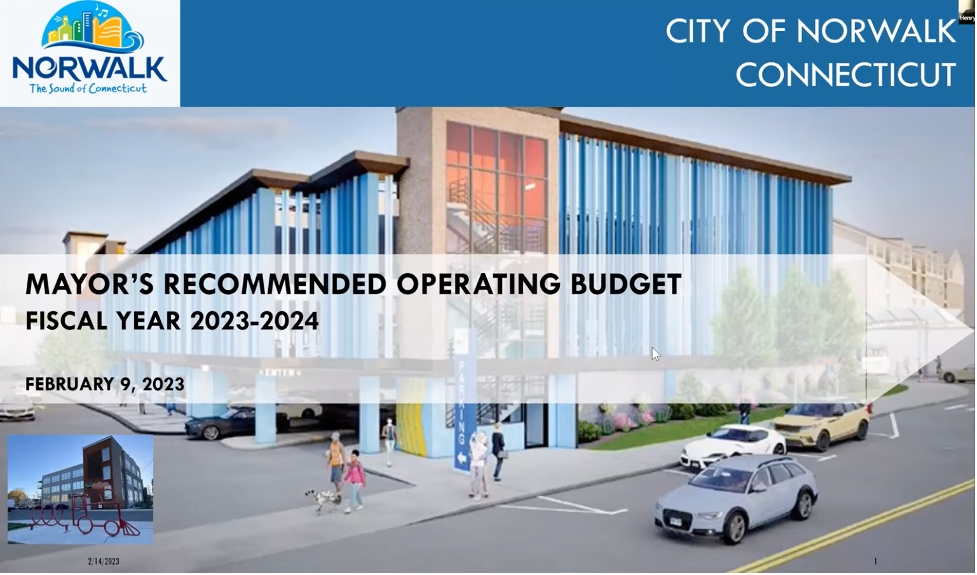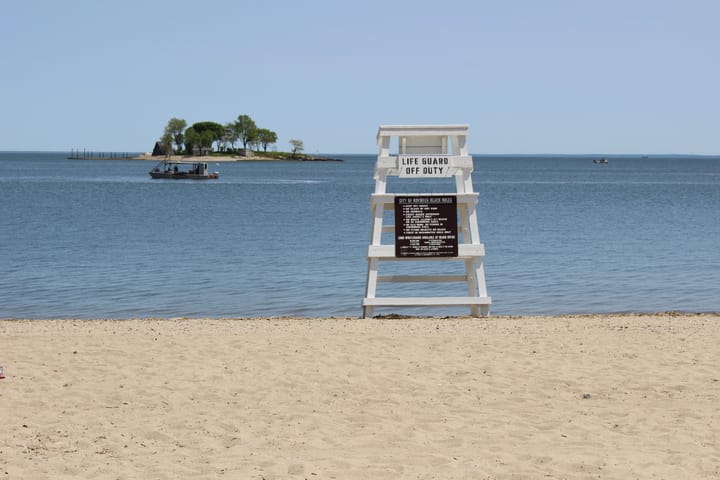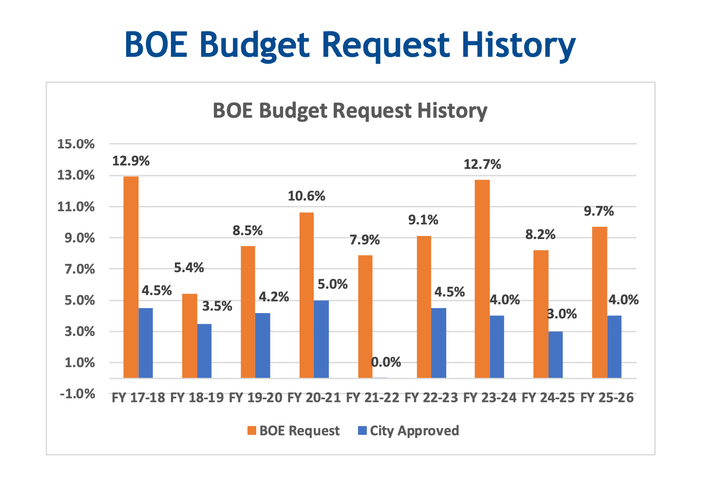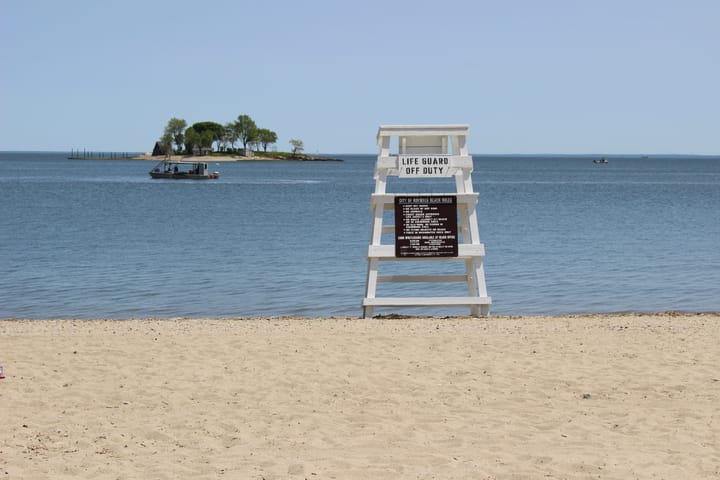A Look at Norwalk’s Proposed 2023-24 Budget
Norwalk has had one of the most challenging budget cycles, with the mayor proposing to increase the school's budget by 4%, short of their ask to increase it by 12.7%.

“This has been a very challenging budget year,” Mayor Harry Rilling said before the Common Council voted to set a budget cap on March 7. “This has been a very challenging year for a variety of reasons.”
Rilling’s recommended budget falls short of what the Board of Education and Superintendent are asking for, leaving residents and the city’s elected officials split on what to do—fully fund the district’s request, which it states is necessary to continue to help students recover from the effects of the COVID-19 pandemic or try not to burden residents with even higher taxes during a tough economic time.
Rilling said that he and the council have heard from many, many residents on both sides, with some asking to fully fund the Board of Education while others, particularly those on fixed or limited incomes, asking the council to try and keep taxes as low as possible.
“We have a challenge before us,” Rilling said.
Proposed Budget by the Numbers
Rilling recommended a $424.4 million operating budget for 2023-24, which is about $10.3 million more than last year or a 2.5% increase. On the city side, he recommended a budget slightly less than last year at $168.4 million, thanks in large part to some savings in employee benefits. On the Board of Education side, the recommended budget calls for $226.6 million, a 4% increase, or $8.8 million more than last year. Shared costs increased from $26.3 million to $29.4 million. The recommended budget also calls for using $6 million in the city’s “rainy day” fund to help offset the tax increase.
However, despite the increases, Rilling’s recommended budget is significantly less than the Board of Education’s request of a 12.7% increase or $27.6 million more than last year.
The Common Council voted to set a budget cap $1 million higher than Rilling’s proposed budget, sending a budget cap of $425.4 million to the Board of Estimate and Taxation to work on.
Highlights from the Proposed Budget
Rilling, in his budget letter, said that this budget practices “strong fiscal management while continuing to invest in essential community services.” Some highlights include:
- Increasing parks and recreation programming and improving field maintenance
- Adding bike infrastructure and conducting a transportation master plan
- Conducting flood mitigation efforts
- Adding to the city’s tree canopy
- Increasing education funding, both on the operating side and capital investments
Budget-Related Challenges
Chief Henry Dachowitz said that some of the factors in the budget increase are due to increases in bonding rates, which makes it more expensive to borrow money and drives the debt service number up. He also said that it has been costing more to deal with the city’s trash and recycling.
But the biggest challenge for the city is the gap between what the Board of Education has requested and what the mayor and council are proposing to fund.
Norwalk’s budget process is pretty unique compared to others in the region. First, the Board of Education approves a proposed budget. Then the mayor incorporates some or all of the request into his recommended budget. The mayor then presents the budget to the Common Council, which sets a budget cap, but doesn’t have line-by-line abilities. Once the council sets a cap, the budget goes to the Board of Estimate and Taxation, which does the detailed work of allocating money by department.
In the council’s process to set the cap, its members heard from dozens of residents, many urging the council to fully support the Board of Education’s request while almost as many called on the board to not think of all residents, many of whom can’t afford that high of a tax increase.
“The council must take a stand to protect taxpayers and residents from being forced out of this city,” resident Lisa Henderson told the council on March 7.
She advocated for supporting the mayor’s 4% because “there isn’t a person I know that doesn’t support the education of our children,” but increasing the school’s budget by that much money would really hurt those on fixed incomes and cause renters to “no longer be able to afford the already high rents.”
Parent Jessica Jones said that students still needed the supports that had been added following COVID.
“I’m nervous for our kids—they’ve gone through a heck of a time in the last three years, and by not fully funding the budget, you are going to remove all these wonderful things that have been put in place to help them,” she said.
Resident Iliana Zuniga said that she was “tired” of having to continually ask the city officials to provide funding for the schools.
“People are feeling tired and defeated,” she said. “My ask is that you find a way to fund as much of the budget as possible to meet the needs of our children’s education.”
Others expressed frustration with how the budget process had been handled thus far.
“This budget cycle has been the most embarrassing I’ve seen since 2005,” resident Lisa Brinton said.
Brinton questioned the council on why there’s such a gap between revenues and expenses.
“You all boast we’re the fastest growing city in Connecticut—where is the money?” she said.
School district officials have said one of the main reasons for the large ask this year is because the council voted to not increase their budget in 2020-21. However, it should be noted that the district is not the only one who had to deal with limited funding that year as other districts, like Stamford only saw a 0.88% increase that year. This year, Stamford is asking for a 3.98% increase in its budget.
Officials in the school district have said that cuts to teachers, resources, and programming could happen if they do not get their full funding.
Next Steps
The Board of Estimate and Taxation just started its budget review, which includes meetings with departments to learn more about their requests and ask questions. See the board’s full schedule of budget review meetings. Some important dates include:
- March 15: Board of Education appears before the Board of Estimate and Taxation at 6:30 p.m.
- March 22: The Board of Estimate and Taxation will hold a public hearing on the budget at 6:30 p.m., which would allow all residents the chance to weigh in on the proposed budget.



